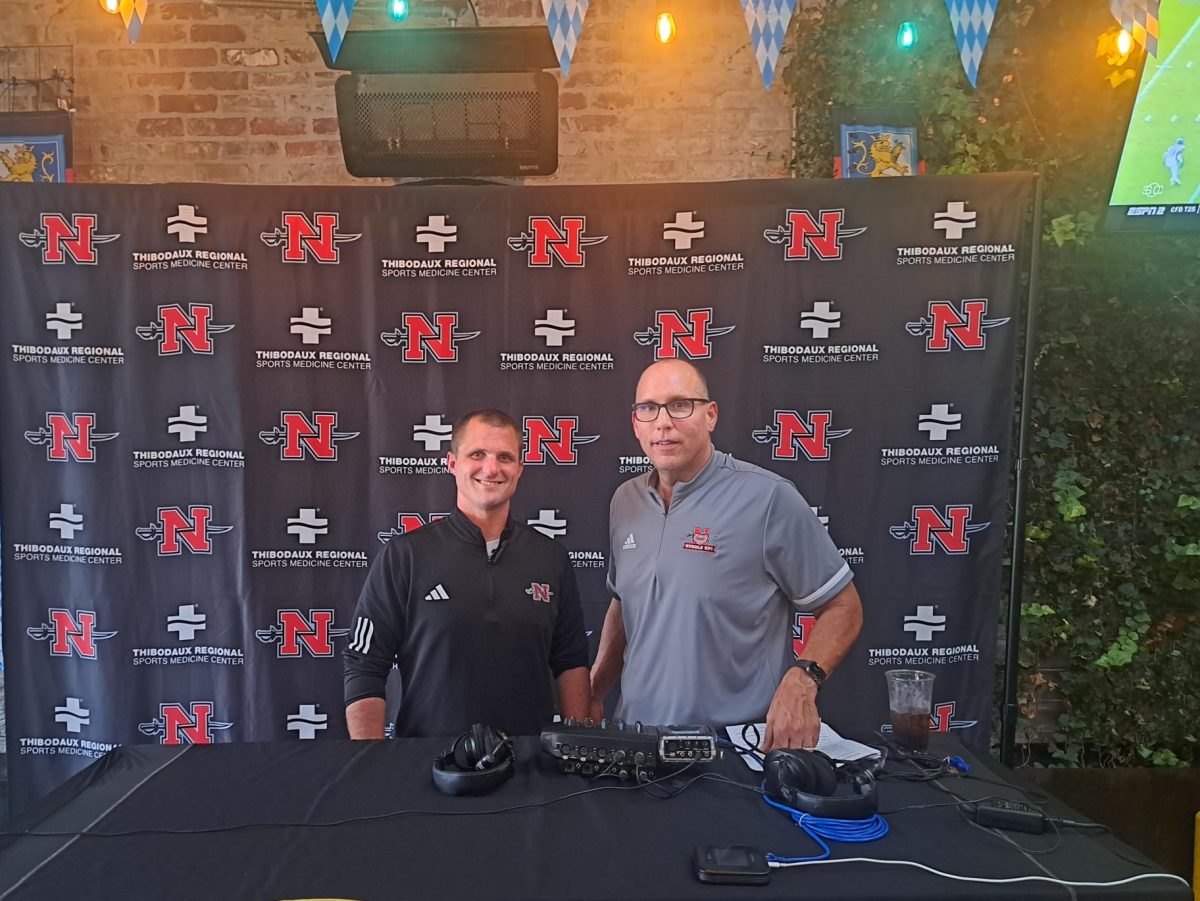Eating Disorder Awareness Week has arrived, and Nicholls is doing its part by encouraging students to love themselves and by educating them on the dangers of these conditions.
According to Elizabeth Sloan, instructor of dietetics, students should be more aware of eating disorders in order to detect them among friends or themselves.
On average, 31 percent of female college students have an eating disorder, according to the National Eating Disorders Association’s website.
However, eating disorders are not necessarily limited to the well-known illnesses such as anorexia or bulimia. According to Sloan, the media portrays these two disorders as the only ones that teens can suffer from, which is simply not the case.
“Signs of eating disorders vary from very obvious, such as puking, to extremely subtle, such as having low self-esteem.” Sloan said. “Being aware is the key to catching these ‘red flags’ as early as possible. Some symptoms get mistaken for normal teenage behaviors like struggling with body image or weight gain.”
So are eating disorders caused by a chemical imbalance in the brain or past physiological experiences? According to Sloan, it can be a bit of both. “New research has shown that people can be born with a chemical imbalance causing them to have an eating disorder,” Sloan said. “What I believe is that it is far more common for eating disorders to be caused by trauma that has happened in the person’s life.”
According to Sloan, eating disorders can also be genetic in the sense that children learn their eating habits from their parents. If the child sees that his or her parent starves him or herself or vomits up food, they will grow up thinking that those behaviors are healthy and could quite possibly start doing it themselves.
Eating disorders are lethal once taken to an extreme. According to Sloan, anorexia is the disorder with the greatest amount of health problems because people who fall victim to anorexia are depriving themselves of nutrients that the human needs to survive. Bulimia also has great health risks that come along with it. Consistently vomiting deprives that body of electrolytes that are necessary for a healthy and long life.
“This is why it is so important to teach students healthy eating habits early on to prevent eating disorders from happening and moving on the to the next generations,” Sloan said.
DIET 305 is a class that is taught at Nicholls that highlights eating disorders in the curriculum. According to Sloan, it is open to any student needing a 300-level elective and meets the prerequisites. This course can further educate students on this important issue.
The counseling center on campus has also taken part in raising awareness this past Monday to students and encouraging them to “love their body” with none other than Love Your Body Day.
Erin Shapiro, a counselor at the Nicholls counseling center, was with a few other student workers handing out buttons, temporary tattoos and pamphlets as a reminder for students that they are all special and beautiful in their own unique way.
Shapiro and other students wrote encouraging messages on the mirrors in most of the bathrooms on campus in order to send an uplifting message to brighten students’ day.
“I’ve gotten some great feedback on the effectiveness of this day, and I really hope that we have brought awareness to our campus,” Shapiro said.
Students also had the opportunity to write what they like about themselves on a leaf and tape it to a tree on a wall in the union to really put things into perspective for the students that participated in the activity.
Students are encouraged to come to the counseling center if they are suffering with an eating disorder or encourage friends that are suffering to get professional help themselves.
Eating disorders are all too common, but spreading awareness is the first step to eradicating this serious condition.
Nicholls recognizes the dangers of eating disorders
Melanie Cowan
•
February 27, 2014
0
More to Discover













